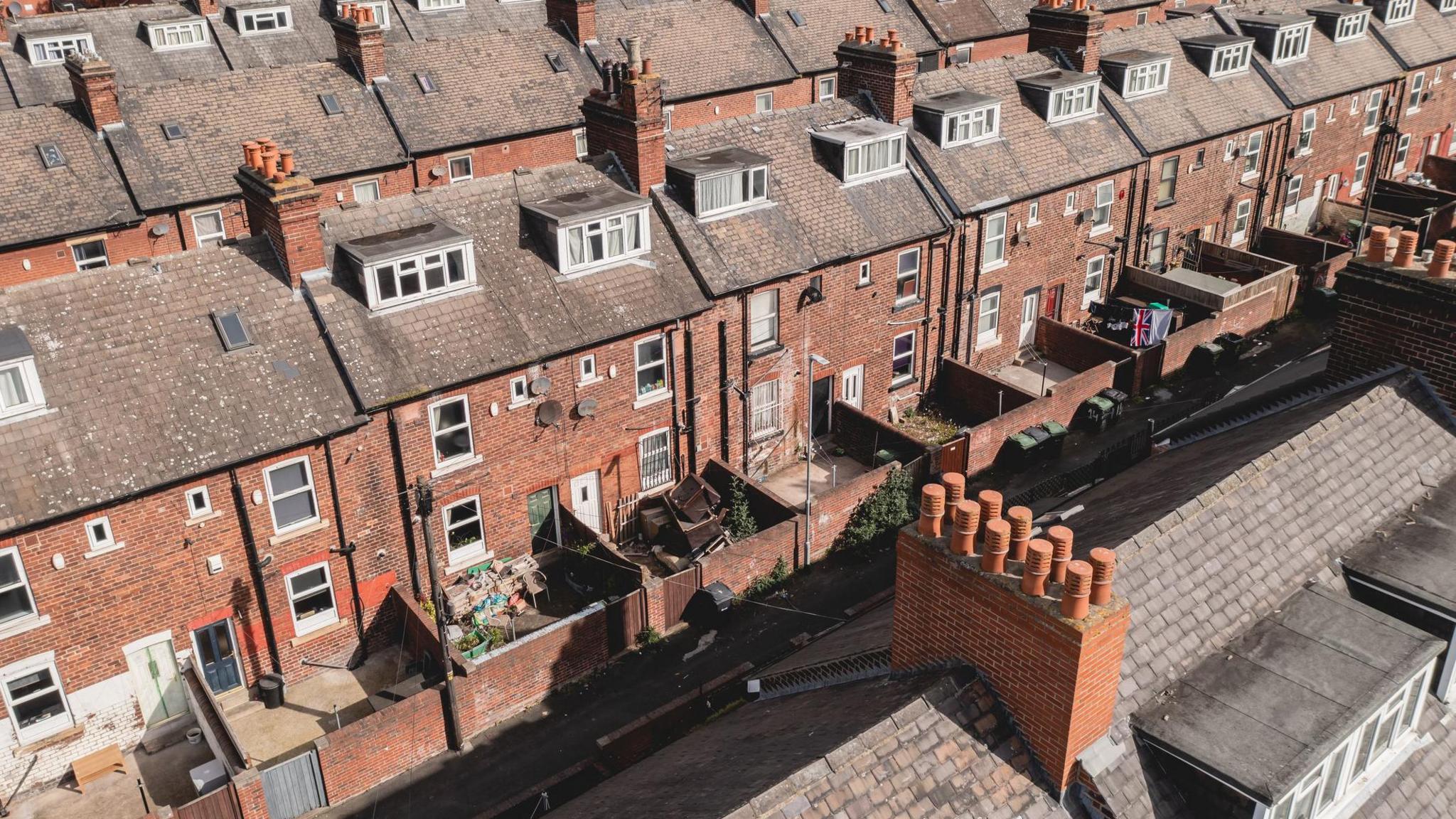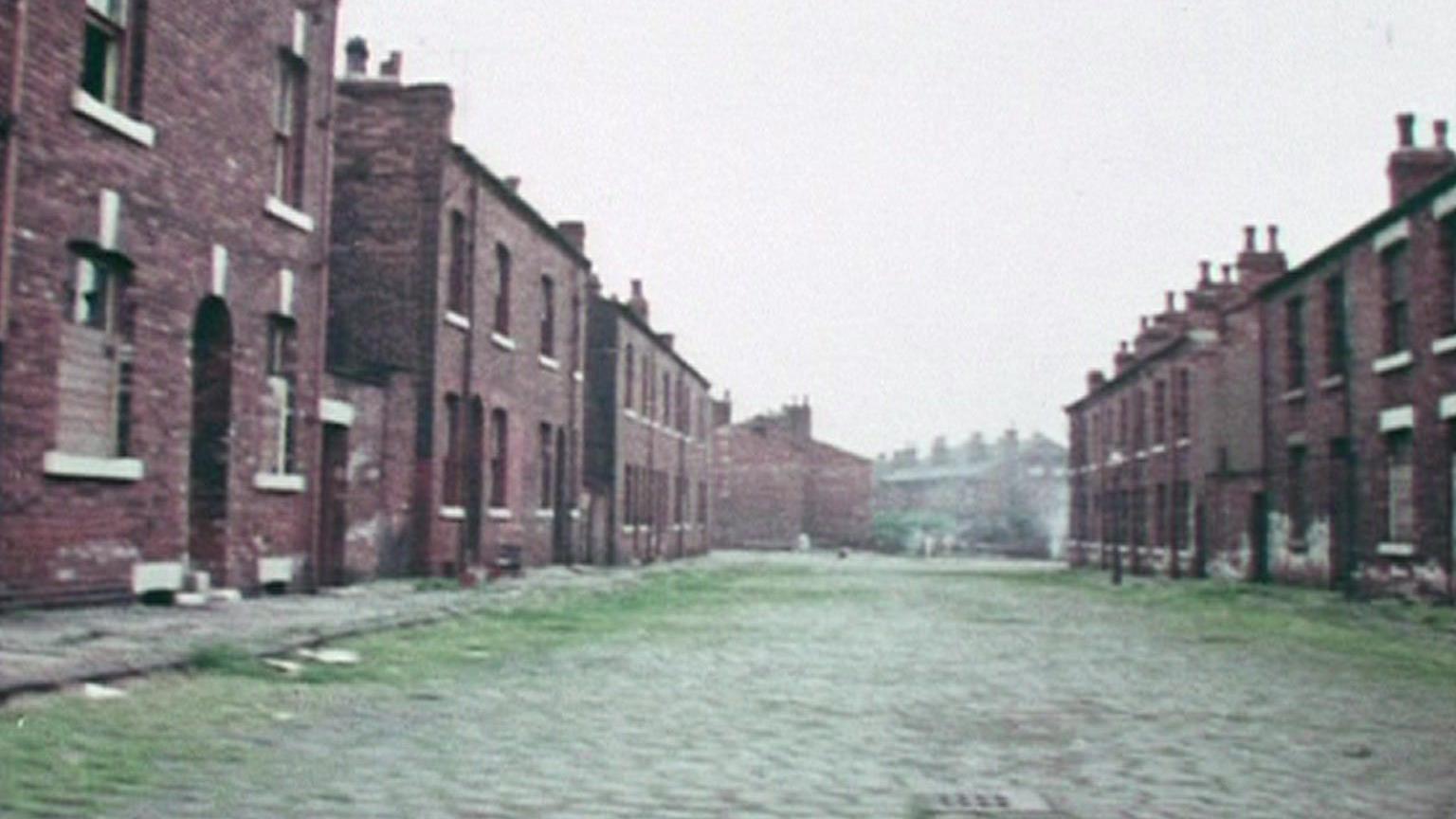Plan to improve energy efficiency of oldest homes

Back-to-backs are a form of terraced house in which two homes share a rear wall
- Published
A £13m scheme could improve the energy efficiency of some of the oldest council houses in Leeds.
Senior councillors have approved a plan to make homes "easier to heat and reduce fuel poverty amongst residents".
About 350 houses in some of the city's most deprived areas have been identified for the improvements.
A Leeds City Council report suggests upgrading homes in Holbeck and Armley and said it would help the city meet its 2030 net zero carbon emissions target.
Back-to-backs are a form of terraced house in which two homes share a rear wall.
They were built from the late 18th Century, with thousands constructed during the Industrial Revolution to house people working in rapidly expanding factory towns.

Many back-to-back houses have been demolished and replaced with modern homes
According to the report, the older, solid-walled properties in Holbeck and Armley have been difficult to improve due to the high cost of solid wall and attic room insulation.
However, it adds the architecture makes them unsuitable for some low carbon heating technologies such as air source heat pumps.
Under the move, the funding would first be used for homes in disrepair, before undertaking improvements for other homes.
That could include installing insulation and replacing doors and windows.

Joe Walsh said despite central heating and double glazing his home still loses heat
Joe Walsh, 66, has lived in his home in Armley for more than 25 years.
"Obviously I'd like to be warmer but they're old houses here; it's hundreds of years old," he said.
Mr Walsh said in the cost of living crisis he had to watch his bills did not run too high in the winter.
"I think you have to watch what you're doing and take more care and learn to turn things off," he said.
"I've got double glazing and central heating but I don't find it very warm - there is room for improvement."
He added: "If I had more money I would move house."
The majority of the funding for the £12.99m scheme is due to come from the West Yorkshire Combined Authority and the government's Levelling Up Fund, according to the report to the Labour-run council's executive.
Opposition parties have broadly welcomed the move, however some have questioned if the scheme goes far enough.